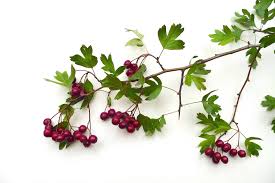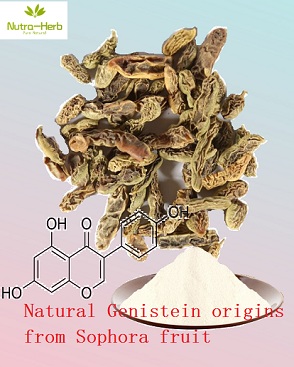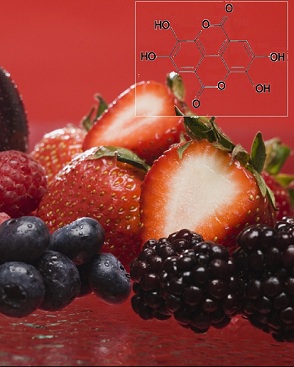- Plant-Based Protein
- Natural Plant Flavours
- Food and Dietary Supplement Ingredients
- Fruit Juice Powder
- Animal Nutrition Ingredients
- Water Soluble Ingredients
- Cosmetic Ingredients
- Unveiling the Therapeutic Potential of Rabdosia Rubescens: A Comprehensive Review
- What are the medicinal properties of Rabdosia Rubescens?
- Nutritional value of Orange Juice Powder compared to fresh orange juice.
- Processing Conditions and Nutritional Value of Orange Juice Powder
- Exploring the Versatility of Herbal Extracts in Food Flavors

What are the health benefits of hawthorn leaf?
Welcome to our blog! Today, we are diving into the world of hawthorn leaf and uncovering its incredible health benefits. Whether you're a fan of herbal remedies or simply curious about natural alternatives, hawthorn leaf is definitely worth exploring.


Ginkgo Leaf Extract and benefits side effect uses dosage Cognitive Booster
Ginkgo biloba Extract can be made as a supplement to prevent mental decline associated with both normal aging and dementia. It may help human to maitain memory and brain sharpness as they age. Ginkgo biloba Extract is prescribed as a memory and concentration booster in many countries and is widely available as an over-the-counter herbal supplement in the US. Ginkgo is thought to increase blood supply by dilating blood vessels, reducing blood viscosity (thickness), affecting neurotransmitters, and reducing free radicals.
Ginkgo (Ginkgo biloba) is one of the oldest living tree species. Ginkgo Extract is made with its fan-shaped leaves.
The most helpful components of ginkgo are believed to be flavonoids, which have powerful antioxidant qualities, and terpenoids, which help improve circulation by dilating blood vessels and reducing the "stickiness" of platelets.
Ginkgo biloba Extract can be made as a supplement to prevent mental decline associated with both normal aging and dementia. It may help human to maitain memory and brain sharpness as they age. Ginkgo biloba Extract is prescribed as a memory and concentration booster in many countries and is widely available as an over-the-counter herbal supplement in the US. Ginkgo is thought to increase blood supply by dilating blood vessels, reducing blood viscosity (thickness), affecting neurotransmitters, and reducing free radicals.

What you may get from us: If you're developing a product that contains plant active ingredients from Ginkgo Biloba.I think you can find the information or products you need here.
Simple production process in our factory: After the plant is collected, raw material will be processed by solvent extraction, separation and purification, filtration, concentration, drying and other steps to form the final products. We may also design a prouction process based on your special requirements.
Through the physical and chemical processes, those compunds you don't want was removed, and the compunds preferred was accumulated. Which make the products achieve the best effects.
How to use Ginkgo Leaf Extract powder: What you need is just use our products to formulate your products. It can be mixed with your other ingredients directly to make premix products. It can also be directly used for filling capsules or making tablets. And if your dosage form is tincture or solution, It can also be suitable. Easy to say, our products are ready for Formula products.
Specification of Standardized Ginkgo Biloba Extract:
The standardized extract of Ginkgo biloba Extract is a proprietary compound of biologically active constituents obtained from the ginkgo leaves and contains 24% flavonol glycosides (primarily quercetin and kaempferol, and isorhamnetin), 6% terpene trilactones of which 2.9% is bilobalide and 3.1% ginkgolides, and other components including proanthocyanidins
|
Ginkgo Leaf Extract |
||
|
CAS No. |
90045-36-6 |
|
|
Appearance |
powder |
|
|
Color |
Brown |
|
|
Partical size |
Normally pass through 80mesh |
|
|
Pack size |
25 kg per paper drum |
|
|
Purity of active compunds |
24% Ginkgo Flavones Glycoside 6% Terpence Lactones Ginkgolic acid<10ppm or 5ppm Meet USP standard and CP2015 standard |
By HPLC |
|
For pricing or more information, please call 86 29 88444632 or send an email to Sales@nutraherbsource.com.
|
||
General Information

Common Names of raw material: Ginkgo, Ginkgo biloba, fossil tree, maidenhair tree, Japanese silver apricot, baiguo, bai guo ye, kew tree, yinhsing (yin-hsing)
Latin Names: Ginkgo Biloba L.
Plant Description:
Ginkgo biloba is a rarity in the plant kingdom and the only surviving species of the Maidenhair Tree tree family. Large, planted deciduous tree with distinctive, fan-shaped leaves. Leaves attached in clusters or alternately. Leaves are light green fading to yellow at the edge. Edge is wavy, veins are parallel, but there is no central vein. Bark is gray.
Chemical Composition:
Ginkgo biloba leaf contains flavonol and flavone glycosides, lactone derivatives (ginkgolides), bilobalide, ascorbic acid, catechin, iron-based superoxide, 6-hydroxykinuretic acid, protocatechuic acid, shikimic acid, sterols and vanilic acid. The major classes of active ingredients are the ginkgolides and bilobalides (also known as terpenes) and the flavonoids. The ginkgo seeds contain a potentially toxic substance, ginkgotoxin (4-O-methoxypyridoxine), which has anti-vitamin B6 activity and inhibits GABA formation, which can potentially lead to convulsions and loss of consciousness. The ginkgo tree roots have a greater concentration of the active ingredients. Commercial manufacturers use the Ginkgo biloba leaves to extract the active ingredients. The standardization of Ginkgo biloba leaf extract products is done by the active ingredients: flavones, ginkgolides and bilobalides.
Traditional uses
Traditionally, the Chinese used the seed of Ginkgo biloba (yin xing yi) for lung-related disorders, particularly asthma, coughs, and other bronchial conditions. The medicinal uses of the seeds were first recorded during the Yuan dynasty (1280-1368 AD) in Li Tung-wan's Si Wu Ben Cao (Edible Herbal). Ginkgo leaves were later included in remedies to strengthen the heart and lungs and first mentioned in a textbook by Liu Wen-Tai in 1505 AD. In Western phytomedicine, Dr Willmar Schwabe, a German physician and pharmacist introduced the first leaf extracts into medical practice in 1965.14 Since that time, the eminence of Ginkgo biloba and its medicinal properties has spread throughout the world for its ability to improve circulation, particularly to the brain and extremities.
Health Benefits of Ginkgo Leaf extract
1. Protects and Enhances Cognitive Health
Research shows that ginkgo can help protect against cognitive decline and increase brain function, particularly for people with Alzheimer’s, dementia or vascular problems caused by cerebral infarction (loss of blood flow to vessels in the brain).
It’s even useful for helping to treat cerebral insufficiency — a condition characterized by chronically low concentration, confusion, decreased physical performance, fatigue, headaches and mood changes.
Many of the brain-boosting ginkgo biloba benefits that researchers have discovered rest on the fact that it’s an effective anti-inflammatory that increases antioxidant activity, lowers oxidative stress and improves circulation — all important factors for maintaining cognitive health.
When researchers from the Institute for Medical Psychology at the University of Munich tested the effects of ginkgo on healthy adults’ mental performance over a four-week period, they found significant differences in self-estimated mental health as well as self-estimated quality of life between those taking ginkgo and the placebo group. This is true even though there were no existing differences between the two groups in terms of general health.
The group taking ginkgo experienced better motor performance and emotional health, and reported no known drug-induced side effects or intolerance. No serious adverse events were observed during the study overall, which suggests that ginkgo may be a safe and effective way to boost mental capabilities with little risk.
2. May Improve Symptoms of Dementia and Alzheimer’s
While not a total cure, overall scientific literature suggests that ginkgo biloba benefits people experiencing cognitive decline in those with dementia or Alzheimer’s disease (AD).
Most studies have investigated the effects of ginkgo on lowering Alzheimer’s symptoms in patients already undergoing standard AD treatment with cholinesterase inhibitor drugs (ChEIs). But when groups of AD patients taking additional ginkgo supplementation have been compared to those not taking ginkgo-combination therapy over at least a one-year period, significant differences in both cognition and quality of life have been reported, according to scores on the Alzheimer’s Disease Assessment Scale (ADAS-Cog) and Activities of Daily Living (ADL) Scale.
Overall, it seems clear that the cognition- and memory-enhancing impact of ginkgo biloba is most pronounced in patients with dementia and/or Alzheimer’s symptoms.
3. Helps Fight Anxiety
One high-quality clinical trial found that a higher dose (up to 480 milligrams) of ginkgo biloba reduced symptoms of generalized anxiety disorder by the end of four weeks. Researchers found that the highest dose given was marginally more effective and that the decrease in symptoms didn’t reach statistical significance until after the entire four week period had passed.
However, ginkgo biloba doesn’t seem to have an impact on depression or other mood disorders. It does increase the effectiveness of treatment for one major mental illness, but we’ll get to that.
4. Fights Symptoms of PMS
Some early research has shown positive effects of taking ginkgo on reducing PMS symptoms like mood swings, headaches, anxiety, fatigue and muscle pain.
One 2008 study published in the Journal of Alternative and Complimentary Medicine compared the effects on ginkgo biloba in two groups of women that were similar in terms of demographic characteristics and baseline overall severity of PMS symptoms. After a six-month intervention with ginkgo, there was a significant decrease in the overall severity of physical and psychological symptoms in both the group taking 40 milligrams daily of ginkgo extract and the placebo group; however, a higher percentage of the ginkgo group (23.7 percent) had improvements compared to the placebo (8.7 percent).
An older clinical trial from 1993 found similar results. While the symptoms were the same in the placebo versus test group, by the end, all participants taking ginkgo biloba had a significant reduction in their PMS symptoms that was not seen in the placebo group.
5. Helps Maintain Eye Health
While more evidence is still needed, ginkgo appears to be beneficial for eye health. A Cochrane review examined the results of ginkgo biloba for lowering the risk for age-related macular degeneration thanks to its platelet-activating factors and prevention of membrane damage caused by free radicals. Not a lot of research yet exists, but the results in so far suggest that ginkgo biloba may improve vision. It’s unclear yet if it truly is preventative for age-related macular generation.
Another unexpected benefit might be ginkgo’s ability reduce pink eye symptoms. Also known as conjunctivitis, pink eye is an infection that can be caused by both viruses or bacteria and often clears up on its own within 10 days. Compared to placebo eye drops, the drops with ginkgo biloba extract reduced the symptoms of pink eye caused by allergies.
6. Helps Prevent or Treat ADHD
One study suggests ginkgo biloba may be somewhat effective at reducing ADHD symptoms in children. Each child in a group of 50 diagnosed with ADHD was given up to 120 milligrams of ginkgo per day, which resulted in lower rated symptoms of ADHD. However, the supplement did not outperform methylphenidate (Ritalin), suggesting the need for future trials at higher doses.
7. Helps Treat Migraines
In younger individuals who suffer migraines, with or without auras, ginkgo biloba may reduce frequency and severity of migraine headaches. The initial study observing these effects found it took about three months to see significant changes. In the subsequent months, the improvements continued to increase.
Another study, this one published in 2009, saw the same changes in women with aura alongside migraines. Researchers gave a combination of ginkgo biloba, vitamin B2 and coenzyme Q10 to patients for a total of four months (after two months during which people withdrew from their current medications). Migraines with aura went away completely in over 42 percent of study participants by the end of month four, while the remaining participants saw partial improvements in their symptoms.
8. Reduces Symptoms of Altitude Sickness
Dread mountain climbing because it causes you headaches or other symptoms of altitude sickness (also known as “mountain sickness”)? Although it’s unclear why, ginkgo biloba has been proven time and time again to reduce symptoms of acute mountain sickness when taken before a climb. These results are only consistent when subjects take 240 milligrams for up to five days before mountain climbing.
9. Improves Sleep Quality
In multiple cases, it seems ginkgo biloba might help to improve the quality of sleep without impacting REM function. This benefit is attributed to ginkgo’s antioxidant activity. For people who are healthy but can’t sleep, 240 milligrams ginkgo biloba per day may increase subjective sleep quality.
Ginkgo biloba most significantly improves sleep for those who lose sleep while taking trimipramine, a popular antidepressant.
10. Fights Fibromyalgia
Some studies have found that supplementing with CoQ10 and ginkgo together improved quality of life for people diagnosed with fibromyalgia, a disorder of the nervous system. Fibromyalgia is a widespread muscle pain typically accompanied by fatigue; headaches; and difficulty with sleep, anxiety and depression. Ginkgo biloba can be used as a natural fibromyalgia treatment.
11. May Support Heart Health
A small but well-designed study in people at high risk for heart disease found that patients on ginkgo biloba had a reduction in the buildup of atherosclerotic plaque (which leads to arteriosclerosis) as well as oxidation of LDL cholesterol levels. The major benefit of ginkgo biloba for heart health seems to be its superior antioxidant ability — taking this supplement increased activity of some of the most powerful antioxidants in the body, superoxide dismutase and glutathione.
Precautions or side effects:
There are some undesirable effects of Ginkgo for individuals with blood circulation disorders, and those taking anti-coagulants (i.e., aspirin, warfarin). Recent studies have found that ginkgo has little or no effect on the anticoagulant properties or pharmacodynamics of warfarin. Ginkgo should not be used by people who are taking the antidepressant drugs, monoamine oxidase inhibitors (MAOI) or by pregnant women. Ginkgo side effects include possible increased risk of bleeding, gastrointestinal discomfort, nausea, vomiting, diarrhea, headaches, dizziness, and restlessness. If any side effects are experienced, stop immediately taking Ginkgo supplements and consult your doctor.
Recommended dosage
Altitude Sickness, Prevention
Leaf extract: 80 mg PO BID
Cognitive Function
Leaf extract: 120-600 mg/d PO BID
Dementia
Leaf extract: 120-240 mg/d PO div BID-TID
- Prev:Echinacea Purpurea Extract and benefits,side effect, uses,dosage ,Work for Cold flu
- Next:Bilberry Extract and benefits side effect uses dosage Natural vision Protector











